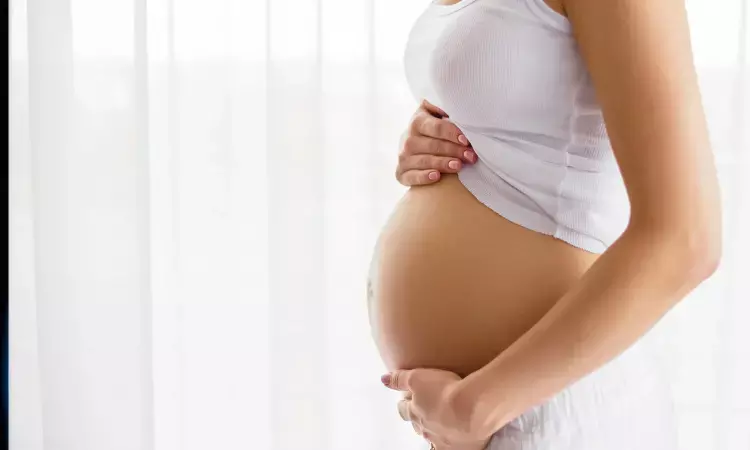- Home
- Medical news & Guidelines
- Anesthesiology
- Cardiology and CTVS
- Critical Care
- Dentistry
- Dermatology
- Diabetes and Endocrinology
- ENT
- Gastroenterology
- Medicine
- Nephrology
- Neurology
- Obstretics-Gynaecology
- Oncology
- Ophthalmology
- Orthopaedics
- Pediatrics-Neonatology
- Psychiatry
- Pulmonology
- Radiology
- Surgery
- Urology
- Laboratory Medicine
- Diet
- Nursing
- Paramedical
- Physiotherapy
- Health news
- Fact Check
- Bone Health Fact Check
- Brain Health Fact Check
- Cancer Related Fact Check
- Child Care Fact Check
- Dental and oral health fact check
- Diabetes and metabolic health fact check
- Diet and Nutrition Fact Check
- Eye and ENT Care Fact Check
- Fitness fact check
- Gut health fact check
- Heart health fact check
- Kidney health fact check
- Medical education fact check
- Men's health fact check
- Respiratory fact check
- Skin and hair care fact check
- Vaccine and Immunization fact check
- Women's health fact check
- AYUSH
- State News
- Andaman and Nicobar Islands
- Andhra Pradesh
- Arunachal Pradesh
- Assam
- Bihar
- Chandigarh
- Chattisgarh
- Dadra and Nagar Haveli
- Daman and Diu
- Delhi
- Goa
- Gujarat
- Haryana
- Himachal Pradesh
- Jammu & Kashmir
- Jharkhand
- Karnataka
- Kerala
- Ladakh
- Lakshadweep
- Madhya Pradesh
- Maharashtra
- Manipur
- Meghalaya
- Mizoram
- Nagaland
- Odisha
- Puducherry
- Punjab
- Rajasthan
- Sikkim
- Tamil Nadu
- Telangana
- Tripura
- Uttar Pradesh
- Uttrakhand
- West Bengal
- Medical Education
- Industry
First delivery by C-section may reduce chances to conceive second child

HERSHEY, Pa. -- Women who deliver their first child by cesarean section (C-section) are less likely to conceive a second child than those who deliver vaginally, despite being just as likely to plan a subsequent pregnancy, according to Penn State College of Medicine researchers. The team followed more than 2,000 women for three years after they delivered their first child.
Kristen Kjerulff, professor of public health sciences, said that although previous studies showed that women who delivered by C-section were less likely to bear subsequent children, it was unclear to researchers whether this was due to maternal choice or a lower rate of conception.
The researchers followed women from before the birth of their first child and interviewed them every six months until three years after their first delivery. During each interview, they asked women to report how often they had unprotected intercourse in each of the previous six months.
Kjerulff and colleagues analyzed data from 2,021 women between the ages of 18 and 35 who provided data on unprotected intercourse and resulting conceptions for three years after their first birth. Nearly 600 of those women delivered their first child by C-section and those women were more likely to be older, overweight and obese, shorter, and more likely to have sought fertility advice, testing or treatment.
Approximately 69% of women who delivered by C-section conceived after unprotected intercourse compared to approximately 78% of women who delivered vaginally. Women who delivered by C-section also had a reduced likelihood of a live birth. The association remained after researchers accounted for maternal age, pre-pregnancy body mass index, time to conception of the first child, gestational weight gain, prior induced abortions, diabetes, hypertension, hospitalization during pregnancy and other factors.
Dr. Richard Legro, a coauthor of the manuscript published in JAMA Network Open and chair of the Department of Obstetrics and Gynecology at Penn State Health Milton S. Hershey Medical Center, says that controlling for intercourse was a key strength of the study and allowed the researchers to rule out trauma or lingering pain from C-section. Although the study didn't investigate the reasons for the decreased conception rate, he suspects there may be some physiological reasons.
"It's possible that pelvic or [fallopian] tubal scarring as a result of being exposed to open air and contaminants may affect subsequent attempts at getting pregnant," Legro said. "It is also possible that scar formation from the surgical wound in the uterus, though not in an area where pregnancies implant, may have lingering effects on the process of implantation."
Based on the findings from this study, Kjerulff and Legro recommend that women under 35 who fail to conceive after a year of unprotected intercourse following a C-section seek medical help. Legro noted the data from this study may be useful for physicians counseling women who elect to have C-sections.
"It's important that women who elect to have a C-section know that there is a chance they may have difficulty conceiving in the future," Legro said.
For more details click on the link: http://dx.doi.org/10.1001/jamanetworkopen.2020.3076
Hina Zahid Joined Medical Dialogue in 2017 with a passion to work as a Reporter. She coordinates with various national and international journals and association and covers all the stories related to Medical guidelines, Medical Journals, rare medical surgeries as well as all the updates in the medical field. Email: editorial@medicaldialogues.in. Contact no. 011-43720751
Dr Kamal Kant Kohli-MBBS, DTCD- a chest specialist with more than 30 years of practice and a flair for writing clinical articles, Dr Kamal Kant Kohli joined Medical Dialogues as a Chief Editor of Medical News. Besides writing articles, as an editor, he proofreads and verifies all the medical content published on Medical Dialogues including those coming from journals, studies,medical conferences,guidelines etc. Email: drkohli@medicaldialogues.in. Contact no. 011-43720751


